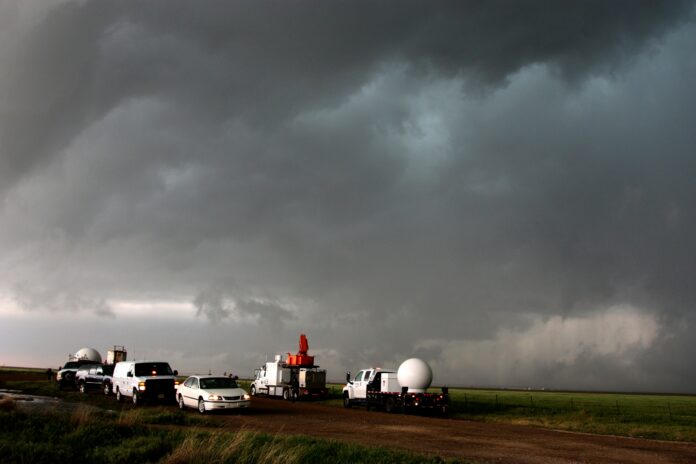Don`t let dream steal take your dream away… They will give you 10 reasons why you can`t… Give yourself one reason why you can and do it! Entrepreneurs let`s go entrepreneurs rule #entrepreneurship #entrepreneurlife #entrepreneur

Quick marketing hack #growthhacking #entrepreneurship #entrepreneurlife

Entrepreneurs… Bend the rules!#entrepreneurship #businessmindset #entrepreneur

They really are no new big ideas…#Entrepreneur #entrepreneurship #entrepreneurlife

Entrepreneurship in under 30 seconds… Thank you for the email! That was challenging but here`s your answer and I hope you like it!#entrepreneurship #entrepreneurlife #entrepreneur

ChatGPT and Claude jump the damn shark… They`re on TV now…#entrepreneur #entreprenuerlife #entrepreneurship

What should you do when your top producing salesman is wrecking havoc on your entire salesforce?#entrepreneurship #entrepreneurlife #entrepreneur

Are we all screwed with AI? If you listen to the long format interviews of CEOs running AI, they sound confused, and uncertain. #entrepreneur #entrepreneurship #entrepreneurlife

In recent years, the world has seen significant progress in technology, with artificial intelligence (AI) leading the way in these advancements. AI’s involvement in predicting weather offers opportunities as well as some challenges to overcome. Recognizing these hurdles and looking into solutions can greatly improve forecast accuracy, which is beneficial for people around the world.
Understanding AI in Weather Forecasting
AI weather prediction has transformed the field of weather forecasting by swiftly and effectively handling data sets—an improvement over the labor-intensive methods that depend heavily on intricate algorithms and human interpretation used in the past. Unlike time-consuming approaches due to their reliance on complex algorithms and manual analysis techniques, AI systems can process real-time information gathered from satellites, radars, and weather station providers.
The Quality of Data
Good AI models depend on having lots of data to work with successfully. The accuracy and completeness of weather data can vary a lot, and it affects how well AI can predict weather conditions accurately. One main reason is the differences in data collection methods across regions; some places don’t have the equipment to gather all the necessary data. To solve this problem and improve the accuracy and consistency of forecasts globally, networks for data collection should be expanded, and countries should work together. Also, it is important to use standardized formats for the collected data to ensure consistency, which helps AI make better predictions.
The Intricacies of Phenomena
The environment is an ever-changing system affected by factors that AI models need to consider for accurate predictions to be made possible. It’s still a task to accurately replicate natural occurrences, like hurricanes and thunderstorms, through algorithms. It’s important to create algorithms that can mirror these events with precision. By bringing meteorologists and AI specialists, we can drive innovation and enhance models to deal with these intricate challenges more effectively.
Challenges With Algorithms
Current AI technology has made progress. However, it still faces challenges in accurately forecasting extreme weather events due to difficulties adjusting to rapid changes in atmospheric patterns, which can lead to less precise predictions. Enhancing the adaptability and learning capacity of AI could greatly enhance forecasting accuracy. Investing in research and development efforts to develop more agile algorithms would empower AI systems to better respond to evolving weather conditions
Questions About Ethics and Privacy
Weather prediction using AI technology involves managing volumes of information and raises privacy concerns. There are worries about how personal data is gathered, stored, and utilized, notably when it contains location details. Setting up rules and regulations for handling data safeguards people’s privacy while allowing for weather forecasts. Openness to AI procedures builds confidence among individuals, promoting the adoption of AI tools.
Ways To Get Better
To tackle these obstacles successfully, implementing a few approaches is necessary. First, encouraging teamwork among meteorologists, data experts, and AI creators fosters the exchange of ideas and sparks creativity. Second, investing in research that aims to improve the flexibility and precision of AI algorithms is crucial. By integrating learning mechanisms into AI models, they can adapt to shifting weather conditions. Finally, it is important to address issues by implementing data protection measures and transparent procedures to ensure the responsible use of AI.
The Importance of Human Expertise
Even though AI can accomplish a lot in weather prediction, human expertise is still vital. Meteorologists possess the skills and background to interpret AI-generated information effectively by blending computing abilities with intuition. A comprehensive forecasting methodology is formed, promoting collaboration across different disciplines and ensuring that AI tools support human work instead of replacing it, leading to better and more precise weather forecasts.
In Summary
AI weather prediction shows promise in enhancing precision and effectiveness, which can help communities in the long run by tackling issues related to data accuracy and atmospheric intricacies while also overcoming algorithmic constraints and ethical dilemmas that come with it. Collaborative efforts, along with increased research funding and ethical deliberations, are steps towards the integration of AI technology in the meteorology field. Combining expertise with AI advancements offers an approach to addressing weather-related challenges, creating a future where AI-powered forecasts are crucial in improving global safety measures and decision-making processes.









